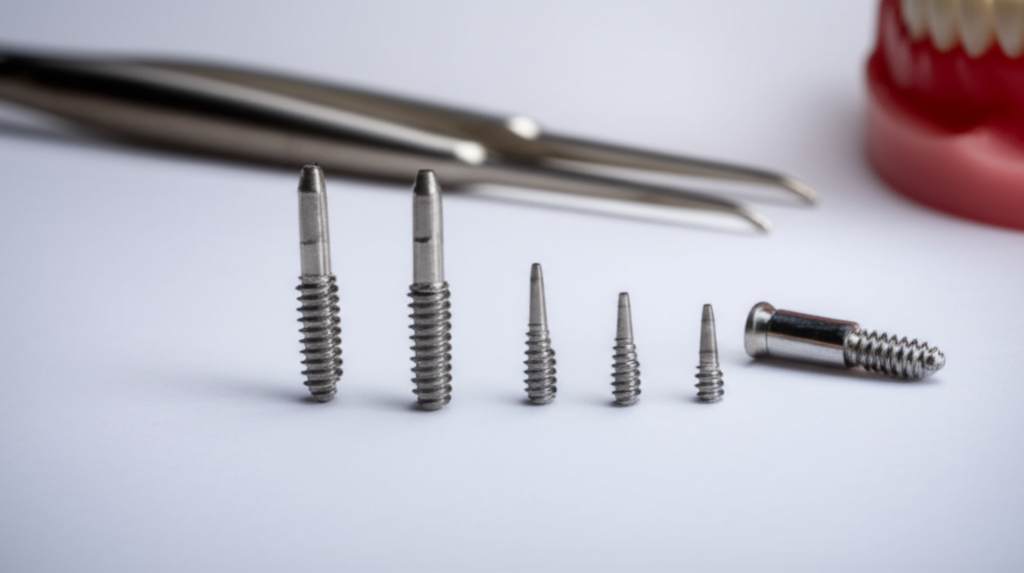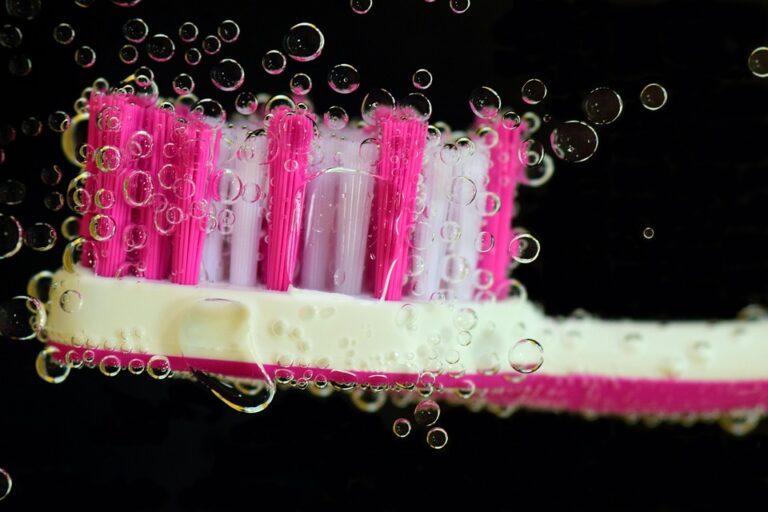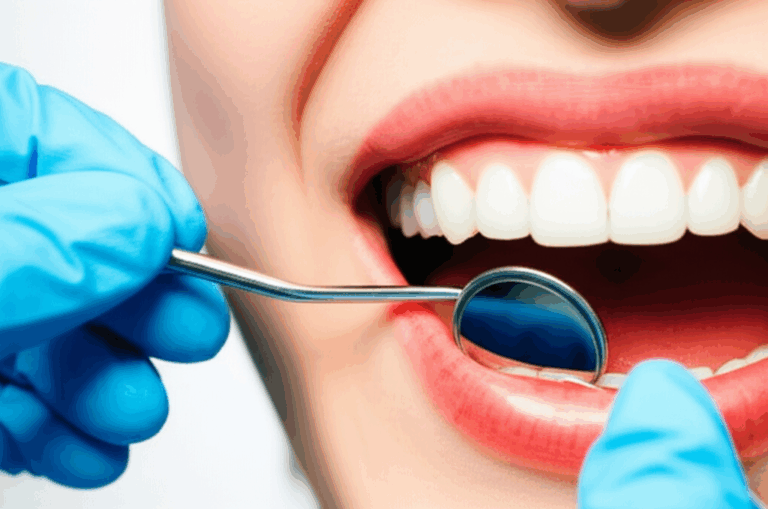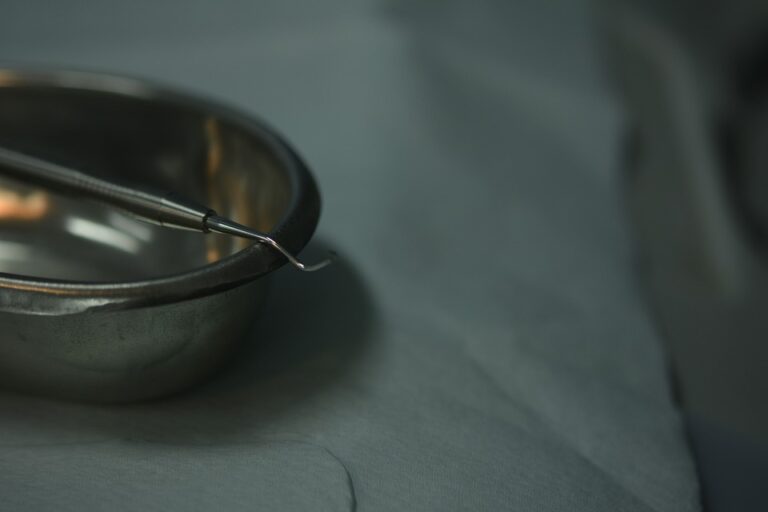
What Are Mini Dental Implants? Your Complete, Friendly Guide to MDIs
Have you ever felt upset by loose dentures that move when you eat or talk? Or maybe your dentist talked about “mini dental implants,” and now you’re thinking: What are mini dental implants, really—and could they finally fix my teeth?
If that sounds like you, you’re not alone. Lots of people want a steady, long-lasting fix, especially if they can’t get regular implants. Maybe you just wish you could chew steak or smile without worry. Or maybe you’re scared about another surgery, more bone work, or a big dental bill.
You’re in the right place. Let’s break down mini dental implants (MDIs) in a simple way—so you know what they are, how they work, their good and bad points, and if they might help you get a happier, more comfortable smile.
In This Article
- What Are Mini Dental Implants? Easy Basics
- Mini vs. Regular Dental Implants: What’s the Difference?
- The Mini Dental Implant Process: What Will Happen?
- Good Sides of Mini Dental Implants
- Drawbacks & Things to Think About
- Who Is a Good Fit for Mini Dental Implants?
- Cost of Mini Dental Implants: What to Expect
- How Long Do They Last & How to Take Care of Them?
- Should You Try Them? A Quick Help Guide
What Are Mini Dental Implants? Easy Basics
Here’s the main question: What IS a mini dental implant, really?
It’s simple—a mini dental implant is just a smaller, thinner version of a regular dental implant. Instead of the thick rods you might think of with normal implants, mini implants use skinny rods—about as wide as a toothpick. Here’s a simple meaning:
> Mini dental implants are small titanium or zirconia rods (about 1.8mm to 3mm wide) that your dentist puts in your jaw to hold new teeth or keep loose dentures tight.
Think of them as the tiny anchors that hold your dentures in place or fill a gap where a bigger implant won’t fit. They’re especially helpful if your jawbone has become thinner or if you want an easier fix.
Why Are These Getting Popular?
Mini dental implants have a special use. They’re usually great for:
- People with loose dentures who need more grip,
- Folks with thin jawbones (where bigger implants won’t work unless you do extra surgery),
- Anyone wanting a quicker, often cheaper solution.
If that’s you, MDIs are worth looking at!
Mini vs. Regular Dental Implants: What’s the Difference?
You might ask, “Aren’t all dental implants the same?” Not really! Here are the main differences.
Size and Shape
- Mini dental implants: Very small rods (1.8–3.0mm wide), usually one solid piece with a round top.
- Regular implants: Thicker rods (3.5–5.0mm or more), usually more than one piece (rod + connector + tooth cap).
Easy Example: Like hanging a light picture with a thin screw (mini implant) vs. using a strong bolt for a heavy mirror (regular implant).
Surgery
- MDIs: Simple and easy; often only needs a small hole. Most times, no stitches.
- Regulars: More steps; may need cuts, stitches, and more drilling.
Quick Tip: Most mini dental implants are put in during one visit. Some people walk in with bad dentures and leave the same day with a tight new smile!
Cost and Healing
- Mini implants are usually much cheaper—sometimes half or even less than regular implants.
- Healing is faster, with a little swelling and less down time.
Use Cases
Mini dental implants work best when:
- You’re making a full or part denture stay put.
- Your jawbone isn’t thick enough for bigger implants (and you don’t want a bone graft).
- You want to fix a small tooth (like a front tooth).
Regular implants are better when:
- You want to replace strong back teeth that do a lot of chewing.
- You need lots of bridgework or full sets of new teeth.
- You want the most strength and longer lasting.
The Mini Dental Implant Process: What Will Happen?
Most people ask, “How does this work? Will it hurt? How long is recovery?” Let’s go step by step.
First Visit and Check-Up
Think of this as a quick “check-in” for your mouth. Your dentist will:
- Look at your gums and jaw.
- Take X-rays (sometimes do 3D pictures).
- Ask what you want to fix. Loose dentures? Gap? The plan is made just for you.
Getting the Implants
Good to Know: Most times, you skip stitches. It’s super easy and not scary.
After You Leave and Heal Up
- Pain: Most people feel only a little sore and use simple pain pills.
- Time off: You can eat soft food (yogurt, eggs) right away. Most go back to work or daily life the next day.
- Check-in: Dentist sees you in a week or two to check your bite and healing.
Good Sides of Mini Dental Implants
Let’s talk about why mini dental implants are so liked! Here’s why people (and dentists) are happy with them.
1. Steady Dentures—No More Sticky Glues!
- Snap-on mini implant dentures stay in place. No more moving or slipping when you talk, laugh, or eat.
- You can throw away those sticky glues.
2. Simple, No Big Fuss
- The surgery is gentle. No cutting or sewing for most people.
- Your jaw doesn’t need to be real thick. MDIs work even if your bone is thinner.
3. Quick and Easy Healing
- You’ll feel less swelling and pain.
- Most people eat usual meals in a day or two.
4. Less Expensive
- Most of the time, mini implants cost much less than regular ones. Sometimes half—or even less.
5. Can Be Used in Lots of Ways
- Helps with loose full or part dentures
- Good for one small tooth when space is tight
- Can even be used for some braces work as little anchors
6. Not Much Extra Surgery Needed
- People who would need a bone add-on for regular implants might skip it with mini implants.
7. Real People Notice Big Changes
Real Example
Maria, 72, hated her loose lower denture for years. “Chewing was scary. I was afraid my teeth would fall out at lunch with friends.” She lost bone and didn’t want big surgery. Her dentist put in four mini dental implants in one visit and fixed her denture in the same day. “I felt better right away. For the first time in years, I could eat an apple without being afraid!”
Proof from Science
- Success rate: 90-97% over 5-10 years for denture support.
- People’s happiness: Very high. People say they can bite stronger, talk better, and feel more sure of themselves.
Drawbacks & Things to Think About
Nothing is perfect. Mini dental implants are great, but you should know their downsides, too.
1. Don’t Last as Long (Still Quite Good)
- Mini implants usually last 5-10 years, sometimes more if cared for well.
- Regular implants can last 20 years or even a lifetime for some.
2. Not as Strong for Hard Biting
- Mini implants aren’t the best for big chewing teeth or for big bridgework.
3. Small Chance for Troubles
- You could get an infection, the implant could get loose, or very rarely, it might break.
- Good cleaning and seeing your dentist often are needed.
4. Not for Everyone
- If you really grind or clench your teeth, or have bad gum sickness, you might need something else.
- Not all types of denture fixes or full teeth can use MDIs.
In Short: Mini implants are great in the right case—but listen to your dentist’s advice.
Who Is a Good Fit for Mini Dental Implants?
Not sure if mini dental implants will help you? Here’s who they help most.
Best for:
- People with loose or shaky dentures (especially the bottom one)
- People told their bone is too thin for regular implants but want to skip bone grafting
- Folks wanting something smaller, easier, and cheaper
- Non-smokers with health problems (like diabetes) under control
- Anyone needing to fix one small tooth where there isn’t much space
Maybe Not for:
- People who grind or clench their teeth a lot (too much force on the minis)
- People with untreated gum sickness or big mouth infections
- Replacing back teeth for hard chewing with bridges
Tell Your Dentist the Truth
Always tell your dentist your full health and medicine list. This helps build a safe long-term plan—just for you.
Cost of Mini Dental Implants: What to Expect
Let’s be honest: Dental work can cost a lot, and everyone wants to know the price before they start. The good news? Mini dental implants are much easier on the wallet.
What Makes Up the Cost?
- How many implants you need (whole denture or just fixing one tooth?)
- Where you live (big cities often cost more)
- How tricky your case is (need a new denture too? More work costs more)
Usual Prices (in the U.S.):
| What You Get | Cost (Per Implant/Total) |
|---|---|
| One mini dental implant (single) | $500–$1,500 |
| Full bottom denture holding power | $2,000–$8,000+ (4–6 MDIs + denture) |
Compare to regular implants: $1,500–$6,000 for one, and $10,000–$30,000+ for all teeth.
Insurance and Payment Plans
- Insurance: Some dental plans pay part, especially if you can’t chew or talk well.
- Payment plans: Many dental offices let you pay by the month.
Extra Tip: Ask for a written estimate—so you never get a bill that surprises you.
How Long Do They Last & How to Take Care of Them?
You want your new teeth to last. How well do mini dental implants hold up, and how do you keep them healthy?
How Long They Last:
- Most mini implants last 5–10 years, based on your bone, how hard you bite, and your care.
- Some will last much longer with super cleaning and regular dentist visits.
How to Care for Them:
Just like a car needs oil changes, your implants need:
- Brushing and flossing every day (ask your hygienist about special tiny brushes)
- Gentle cleaning near the implant rods and places they snap in
- Going to the dentist at least every six months for a cleaning and check-up
- Staying away from super hard or sticky food if your dentist says so
For Denture Wearers:
- Take dentures out and wash every day (unless yours are stuck on tight)
- Soak the denture at night if told to by the dentist
- Carefully clean the implant parts in your mouth—not just your denture
If you see swelling, pain, or if your implant starts to move, call your dentist fast. It’s easier to fix small things before they get big.
Should You Try Them? A Quick Help Guide
You came here looking for simple, honest info about mini dental implants. Quick summary:
Main Points:
- Mini dental implants are smaller, less scary options than regular implants,
- They are great for stopping loose dentures and fixing small teeth,
- It’s a fast, cheaper process that skips extra bone surgery,
- They’re not as strong as regular implants—so don’t use for the biggest chewing jobs,
- Good cleaning and dentist check-ups make them last for years,
- Unsure if they’re for you? The best move is to talk to your dentist.
Ready? Here’s What to Do Next:
- If you struggle with loose dentures or not enough bone for regular implants, ask your dentist about MDIs.
- Bring a list of questions to your dentist: what you want, your habits, your health, and cost.
- Remember—every mouth is different. A plan made just for you gets the best results.
You deserve to smile, eat, and talk without worry. Mini dental implants might let you do that—so ask about them next time you see your dentist.
Want to Learn More?
Curious about other ways to fix teeth, like bridges or crowns? Visit crown and bridge lab. Want to know more about dental materials? Try dental ceramics lab. For tips on keeping your teeth healthy, check out teeth health.
Frequently Asked Questions
Q: Do mini dental implants hurt?
A: The process is gentle—most people feel just a little sore, like after a filling.
Q: Are mini dental implants removable?
A: The implants stay in. If you have a snap-on denture, you can take out the denture, but the implants stay in your mouth.
Q: Can I use my old denture with mini implants?
A: Often, yes! Your dentist may be able to change your current denture to snap onto the new implants.
Q: Will I need bone grafting?
A: With mini implants, most people don’t need any bone grafting.
Last Words
You have options for your smile. Mini dental implants aren’t for everybody, but for some, they really are life-changing—helping you eat, talk, and live with new confidence.
Still got questions? Make an appointment and talk honestly with your dentist. Your healthy, happy smile is worth it.
References:
- American Dental Association (ADA)
- Studies on dental implant success
- Real patient stories from dental journals
(Remember: Good dental choices come from learning and asking questions. You’ve already started—keep going!)








